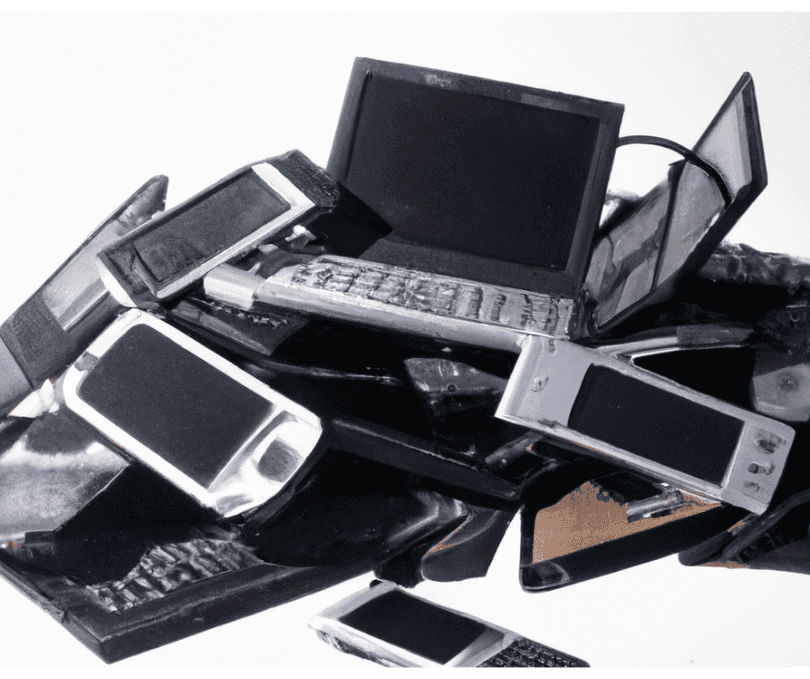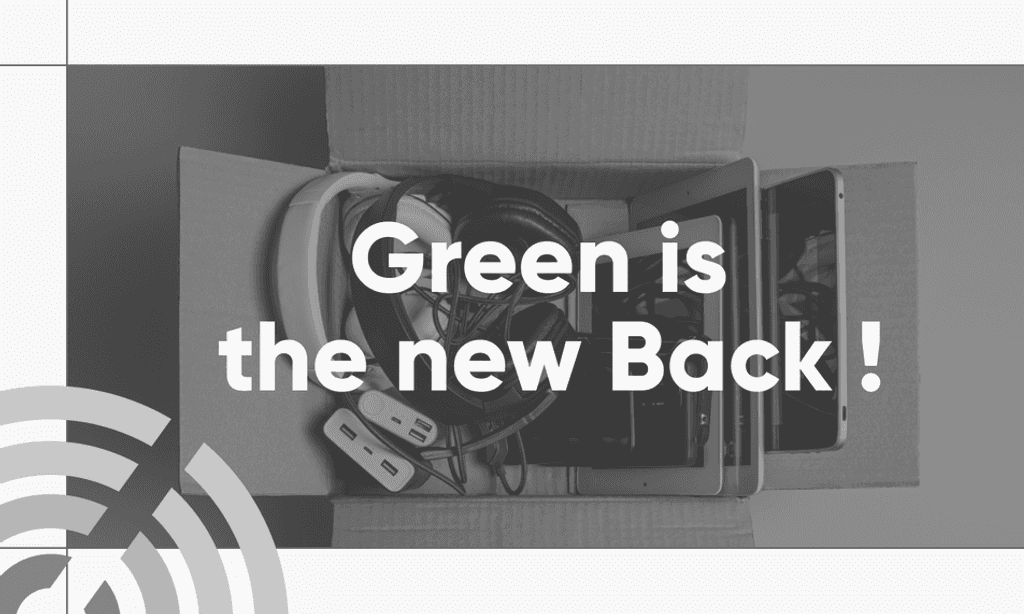What is refurbished: definition and state of play
At the crossroads between used and new, refurbished products are distinguished by the process of refurbishing previously used electronic devices by professionals. Reconditioning experts inspect, clean, repair and update these devices before putting them back on the market. Beforehand, they undergo rigorous testing to guarantee their performance and reliability, often backed by a warranty to ensure buyers' peace of mind.
When you opt for a refurbished product, it may present three distinct states:
- The "almost-new", devoid of any trace of use, yet offering a significant financial advantage.
- The “very good condition", showing a few slight signs of use, but retaining its optimum performance.
- The “good condition", with minor signs of wear and tear such as scratches or impacts, without compromising functionality.
Refurbished products offer the opportunity to get a great deal on a product that meets the same quality standards as new. Above all, this approach gives products a second life, as part of a responsible approach to social and environmental responsibility.
Behind the scenes of your technological needs
When companies invest in IT hardware, such as a fleet of smartphones or PCs, the environmental impact is usually relegated to the back burner. Often, organizations don't fully realize the significant carbon footprint associated with acquiring this essential equipment. The figures are striking, highlighting the considerable carbon footprint associated with the manufacture of everyday business tools:
- In 2018, the world already counted 15 billion connected objects, a figure set to rise to 46 billion by 2030.
- The digital sector itself is responsible for 4% of global greenhouse gas emissions. Computers and smartphones account for 47% of these emissions.
- The production of a new phone, throughout its entire chain of creation, generates around 40 kg of CO2.
- This alarming finding underlines the fact that 75% of greenhouse gas emissions in the digital sector are linked to the manufacture of devices. To meet growing technological demand, huge quantities of water resources and raw materials are extracted and moved around the world.
However, these purchases are not superfluous, but necessary investments in the business context. Indeed, providing teams with the right equipment is an integral part of day-to-day business. But the technology industry, constantly in search of innovation, must imperatively rethink its environmental impact. Refurbished products are an effective response to current climate issues.
Smart & Green: why refurbishing is a sustainable choice for businesses.
Reconditioning is not only a smart economic option, but also a sustainable choice for companies committed to social and environmental responsibility (SER). By helping to reduce electronic waste, it gives devices a second life, prolonging their usefulness while reducing our impact on the environment. Opting for reconditioned equipment is therefore a proactive initiative that enables companies to have a direct impact on their carbon footprint, thus contributing to the achievement of their corporate social responsibility objectives.
In 2021, ADEME reported that between 54 and 110 million mainly functional phones are currently lying idle in the drawers of French companies. Faced with this reality, the refurbished market has grown significantly, with 3.1 million smartphones sold in France in the same year, marking a 20% increase on 2020 and generating sales of 800 million euros. While this is a significant increase, it remains modest in comparison with the 16 million new smartphones sold over the same period.
For companies, the environmental impact of refurbished products is of particular importance when we consider, for example, the life cycle of a smartphone. ADEME points out that the purchase of a refurbished cell phone can reduce its annual environmental impact by 55% to 91%, depending on the model, compared with a new one. Integrating refurbished smartphones into corporate technology fleets therefore represents a conscious and proactive approach, offering a tangible way to participate in preserving the planet while enabling companies to benefit from high-performance, affordable technologies.

Reconditioning in the workplace: economic and environmental benefits
For companies, choosing refurbished products offers a range of advantages:
IT budget: significant savings (H3)
Refurbished products are on average 30% to 70% cheaper than new models. This alternative offers a real opportunity to spend smarter without sacrificing quality. As a sustainable solution for replacing or extending IT equipment, it contributes to a company's social and environmental responsibility. Cost amortization becomes more efficient, freeing up resources for other strategic investments.
A driver for an ethical and sustainable approach (H3)
Purchasing a refurbished phone not only offers the advantage of reusing materials, thus avoiding the extraction of new resources, but also considerably minimizes the overall environmental impact. Opting for refurbished phones not only avoids the use of new materials, but also eliminates the carbon and social impacts associated with manufacturing. Unlike new smartphones, which require a significant amount of energy for their production, refurbished phones offer a major ecological advantage by significantly reducing the associated energy demand. So choosing refurbished becomes a truly ecological option, combining the reuse of materials with a minimal carbon and social footprint.
Worth knowing: A smartphone refurbished abroad means 20 kg of CO2. But if your cell phone has been reconditioned in France, it weighs just 9 kg of CO2.
A guarantee of value and reliability (h3)
Reconditioning is regulated and therefore totally transparent. When you buy your product, you'll be informed precisely about its condition. What's more, the product is very often guaranteed, just like a new one.
Why do we do this? Because a reconditioned device has undergone numerous checks. So if you buy a refurbished smartphone and it breaks down within two years, you're covered!
Refurbished: a job creator (H3)
A study has shown that by 2030, some 440,000 people could be working in the refurbished sector, repairing and recycling millions of objects. This significant number of jobs is not only a quantifiable prospect, but is also distinguished by its local nature. Indeed, unlike manufacturing, which is often outsourced abroad, reconditioning generates many local jobs, often within French companies, or even Établissements et Services d'Aide par le Travail (ESAT). This new reconditioning economy has already created numerous jobs and promises to generate many more in the future, making a significant contribution to local and sustainable economic development.
Sustainable bargains: the star suppliers of refurbished products!
In the flourishing refurbishing landscape, several players stand out for their commitment to sustainability and their contribution to the circular economy:
- Back Market: The world's leading refurbisher, Back Market offers a diverse range of devices, from smartphones to computers to household appliances. Their transparent approach and guarantees ensure customer satisfaction.
- YesYes: YesYes is a French refurbishing company with workshops in France. All refurbished products (smartphones, consoles, iPads, etc.) come with a 2-year warranty. They are delivered with new CE-certified charging accessories guaranteed for 10 years.
- Recommerce : Created in 2009, the company is the French pioneer of recommerce, a concept that promotes the remarketing of second-hand goods and is in line with the circular economy.

Why we love refurbished too!
At Fruggr, we're proud to promote sustainable practices. Conscious of our environmental impact, we have integrated the purchase of refurbished products into our operations. This allows us not only to reduce our ecological footprint, but also to participate in the circular economy by giving a second life to electronic devices. This approach in no way affects our day-to-day operations or our performance - quite the contrary. It's a choice in line with the values we uphold, promoting sustainability and innovation while helping to preserve the environment.
In conclusion, choosing refurbished products is more than just a smart purchase; it's a concrete act to preserve our planet. Whether for economic or environmental reasons, or both, refurbishing offers a viable and responsible alternative for building a more sustainable future.
